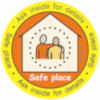Stalking
Stalking is a crime – but there is still a lack of understanding about what behaviours constitute stalking.
Stalking is a pattern of repeated and persistent unwanted behaviour that is intrusive and engenders fear. It is when one person becomes fixated or obsessed with another and the attention is unwanted. The behaviour may not include threats or violence, but victims may still feel scared. Threats are not required for the criminal offence of stalking to be prosecuted.
Stalking can consist of any type of behaviour such as regularly sending flowers or gifts, making unwanted or malicious communication, damaging property and physical or sexual assault. If the behaviour is persistent and clearly unwanted, causing you fear, distress or anxiety then it is stalking and you should not have to live with it.
Monitoring, loitering, interfering and spying are types of stalking commonly experienced by victims.
Other signs of stalking include:
- Frequent phone calls and text messages
- Publishing material that relates to you
- Messages on social media
- Notes left on your car
- Gifts left at your home
- Being followed
- Someone visiting your home or workplace
- Threats or violence
- Damage to property
The police take reports of stalking very seriously and have specially trained officers who can support victims and signpost them to further help, as well as bringing perpetrators to justice.
If you think you are being stalked, report it to the police by calling 101. If you, or someone else is in immediate danger, call 999.
For more advice visit the Suzy Lamplugh Trust website



